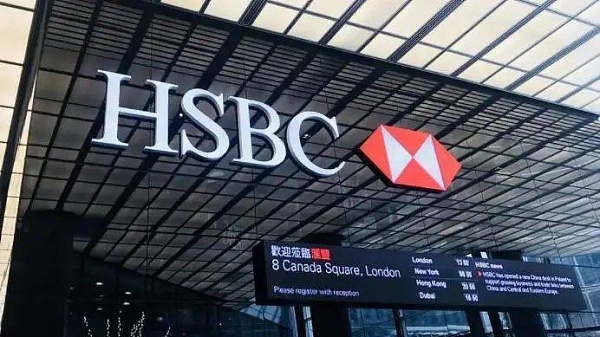Recently, Hong Kong legislator Michael Tien expressed that after Hong Kong’s regulatory authorities established a regulatory framework for virtual assets, there has been a surge in applications for virtual asset licenses, leading to a shortage in the market. As a result, the salaries of Responsible Officers (RO) for Automated Trading Systems (ATS) have also increased. It is understood that the normal monthly salary for holders of relevant licenses typically ranges from HKD 100,000 to HKD 200,000.
Ripple, the world’s third-largest cryptocurrency, announced that it is collaborating with Hong Kong businesses and financial regulatory authorities. Kirit Bhatia, Ripple’s Head of Business Development, stated that Hong Kong is one of the most important and enduring financial centers in the world. It is also one of the cities with the largest number of blockchain investments and developers, with a highly concentrated pool of developers and blockchain-related investments. Ripple will drive the tokenization of value and is currently working closely with Hong Kong’s financial regulatory authorities to promote pilot projects such as Central Bank Digital Currencies (CBDC) and the tokenization of real assets based on the XRP Ledger.

Various signs indicate that after HashKey and OSL obtain the first batch of retail virtual asset trading platform licenses in Hong Kong and upgrade to compliant licensed trading platforms targeting retail users, Hong Kong will finally usher in the year of regulatory compliance in the cryptocurrency market. HashKey Exchange and OSL will have a significant first-mover advantage in terms of user stickiness and platform development.
- Conversation with Lido Strategic Advisor Hasu Will Lido pose a threat to Ethereum?
- Analysis of the Reasons Why OP Stack is Popular Among Developers
- Binance Labs invests $10 million in Helio Protocol analysis
The Securities and Futures Commission of Hong Kong has previously stated that it has observed certain unlicensed virtual asset trading platforms using improper business practices, including falsely claiming to have submitted applications to the Securities and Futures Commission, virtual asset trading platforms that do not comply with the Securities and Futures Commission’s regulations, and existing companies operating unlicensed virtual asset trading platforms in Hong Kong. This situation may hinder the arrival of subsequent licenses, further strengthening the advantage of institutions that obtained the first batch of licenses. In addition, what else may happen in the next year after opening up retail trading?
1. Which tradable coins may there be?
According to the new regulations released by Hong Kong in March, licensed platform operators intending to provide virtual assets to retail customers should ensure that the selected virtual assets are qualified large-scale virtual assets and meet the following specific token inclusion criteria: “Qualified large-scale virtual assets” refers to virtual assets included in at least two “accepted indexes” launched by at least two independent index providers. Licensed platform operators should ensure that at least one of the two indexes is launched by an index provider with experience in publishing indexes for traditional non-virtual asset financial markets, such as an index provider that has previously launched index funds tracking indexes recognized by the Securities and Futures Commission.
According to statistics from @tier10k, Bitcoin (BTC) and Ethereum (ETH) are recorded in all the indexes launched by the five mainstream traditional institutions. Litecoin (LTC) and Polkadot (DOT) rank second, with four indexes included. Bitcoin Cash (BCH) and SOL rank third, with three indexes included. Cardano, Avalanche, Polygon, and Chainlink rank fourth, with two indexes included. Additionally, EOS, BNB, ATOM, FIL, ETC, XLM, UNI, and others are also included once. However, it should be noted that the indexes of major institutions may change with market conditions.

William believes that, under the requirements of the China Securities Regulatory Commission, there are currently 13 cryptocurrencies that can be used as alternative materials for retail trading, namely: BTC, ETH, ADA, SOL, MATIC, DOT, LTC, AVAX, UNI, LINK, AAVE, BCH, and CRV. Of course, these currencies may not be allowed to be traded by retail investors. Assets available for retail trading must meet three conditions: “due diligence review by the exchange + qualified large-scale virtual assets + written approval from the China Securities Regulatory Commission.” For example, the current operating conditions of SOL and BCH are not very optimistic and may be excluded by the China Securities Regulatory Commission.
Currently, Hashkey only provides 5 assets and 7 trading pairs, including BTC, ETH, USDT, USDC, and USD; OSL only provides BTC and ETH.
2. Brokers and Banks Allow Retail Cryptocurrency Trading
On June 26th, HSBC, the largest bank in Hong Kong, allowed its customers to buy and sell virtual asset ETFs listed on the Hong Kong Stock Exchange, becoming the first bank in Hong Kong to allow customers to buy and sell virtual asset ETFs listed on the Hong Kong Stock Exchange. This will expand the exposure of local users in Hong Kong to cryptocurrencies. Currently, the cryptocurrency ETFs listed in Hong Kong include the CSOP Bitcoin Futures ETF, the CSOP Ethereum Futures ETF, and the Samsung Bitcoin Futures Active ETF.

Andy Hu, CFO of BC Technology, the parent company of OSL, said that last year the China Securities Regulatory Commission and the Financial Services and the Treasury Bureau issued very clear guidelines. If banks and brokers want to provide digital asset services to customers, they must cooperate with licensed digital asset institutions. There are two ways to cooperate: one is to directly introduce customers, and the other is to apply to the China Securities Regulatory Commission and cooperate with licensed digital asset service providers to incorporate digital asset services into the existing stock and bond services.
Brokers can open accounts on licensed digital asset trading platforms to buy and sell digital assets for their end customers. Of course, banks can also develop their own trading systems and apply for licenses, but digital assets are not the main products of the banking industry, so the more efficient way is to cooperate with external licensed digital asset platforms.
3. More Cryptocurrency Licenses
After June 1st, the Hong Kong government implemented the Virtual Asset Service Provider (VASP) licensing system. Prior to this, the “Type 1 and Type 7” licensing systems were implemented, which are licenses for regulated activities in Type 1 (securities trading) and Type 7 (provision of automated trading services). Currently, only Hashkey and OSL have obtained these two licenses mentioned above.
The VASP licensing system differs from the previous system mainly in that it allows retail trading, requires mandatory licensing (previously only targeted professional investors and voluntary licensing), and enhances investor protection. However, it also sets higher thresholds to screen for high-quality cryptocurrency exchanges. For example, it requires the establishment of a physical office in Hong Kong, at least two Responsible Officers (RO) with years of experience in traditional financial institutions and cryptocurrency trading, a certain number of cryptocurrency users and trading volume before June 1st, TCSP license, Type 1 and Type 7 licenses, and one year of formal operation and regulatory approval before obtaining the official license.
Currently, at least 10 institutions have announced the application for the Hong Kong VASP license, including HashKey, OKX, Huobi, BitgetX, BitMart, Bybit, BitMEX, and Gate, as well as traditional institutions such as iBank Financial.
BC Technology CFO Hu Zhenbang believes that the number of exchanges that will ultimately obtain the license will not be too many, estimated to be around four to five. This is because it requires sufficient capital, custody services, maintenance and stability of the trading system, investment in network security, compliance requirements close to traditional finance, and backend support, which are a series of relatively high thresholds for companies that do not have compliant operations.
4. Stablecoin Regulatory Framework
The regulatory framework for stablecoins in Hong Kong can be traced back to the first policy address after Hong Kong Chief Executive Carrie Lam took office in October 2022. At that time, she stated that the Hong Kong Monetary Authority was studying the market’s opinions on regulating stablecoins and would ensure that the regulatory system is in line with international regulatory recommendations and suitable for local conditions.
On January 31, 2023, the Hong Kong Monetary Authority published a consultation summary on encrypted assets and stablecoins, proposing to regulate several activities related to stablecoins and outlining the expected regulatory scope and main regulatory requirements in the summary document.
At the same time, Binance, Deloitte, Alipay, Animnoca, Circle (issuer of USDC), HSBC, Mastercard, NewFire Technology, WeChat, and others have provided suggestions on the Hong Kong Monetary Authority’s “Consultation Paper on Cryptocurrency and Stablecoin”.
On March 20, Hong Kong Financial Secretary Christopher Hui stated in a speech that the Hong Kong Monetary Authority is studying the regulatory system for stablecoins, with the goal of implementing relevant regulations in 2024.
On April 29, the Hong Kong Monetary Authority released its 2022 Annual Report, emphasizing that the first objects to be regulated will be stablecoins pegged to one or more fiat currencies. In 2023, it will start formulating more detailed regulatory requirements, taking into account various factors, including the latest market developments, international institutions’ recommendations and best practices for stablecoin regulation, as well as responses received on the consultation paper on encrypted assets and stablecoins.
On May 9, Hong Kong Monetary Authority Chief Executive Eddie Yue stated that in addition to the licensing of virtual asset platforms, a mandatory licensing regime for stablecoins will be launched between 2023 and 2024.
On May 23, a Hong Kong Securities and Futures Commission document stated the opinion that non-securities tokens should have at least 12 months of track record. The regulatory arrangement for stablecoins is expected to be implemented in 2023/24. Before stablecoins are regulated in Hong Kong, we believe that stablecoins should not be included for retail trading.
On June 12th, Chen Haolian, Deputy Director of the Financial Affairs and Treasury Bureau of Hong Kong, stated that the Hong Kong Monetary Authority has conducted public consultations on the introduction of stablecoins. In the future, it will gradually establish a regulatory framework with the goal of launching it before the end of next year.
Like what you're reading? Subscribe to our top stories.
We will continue to update Gambling Chain; if you have any questions or suggestions, please contact us!